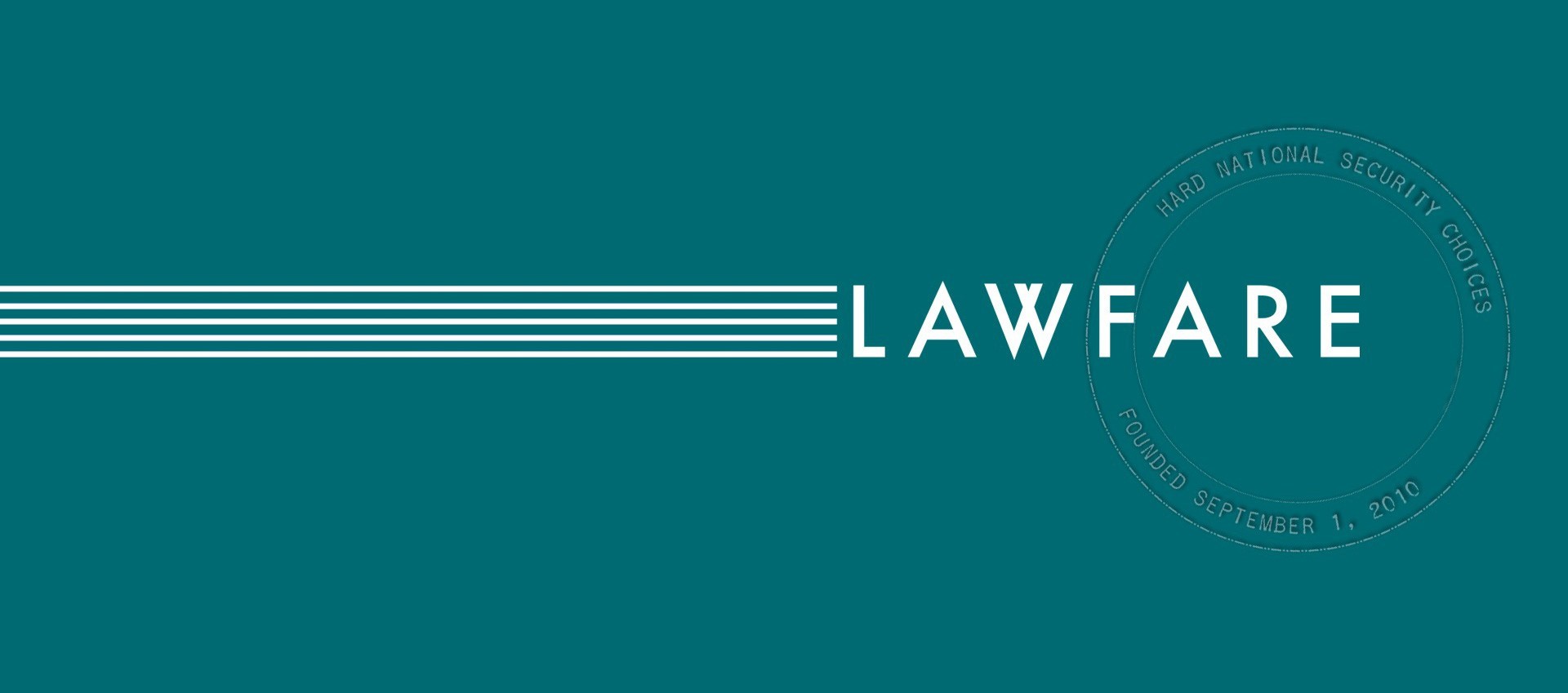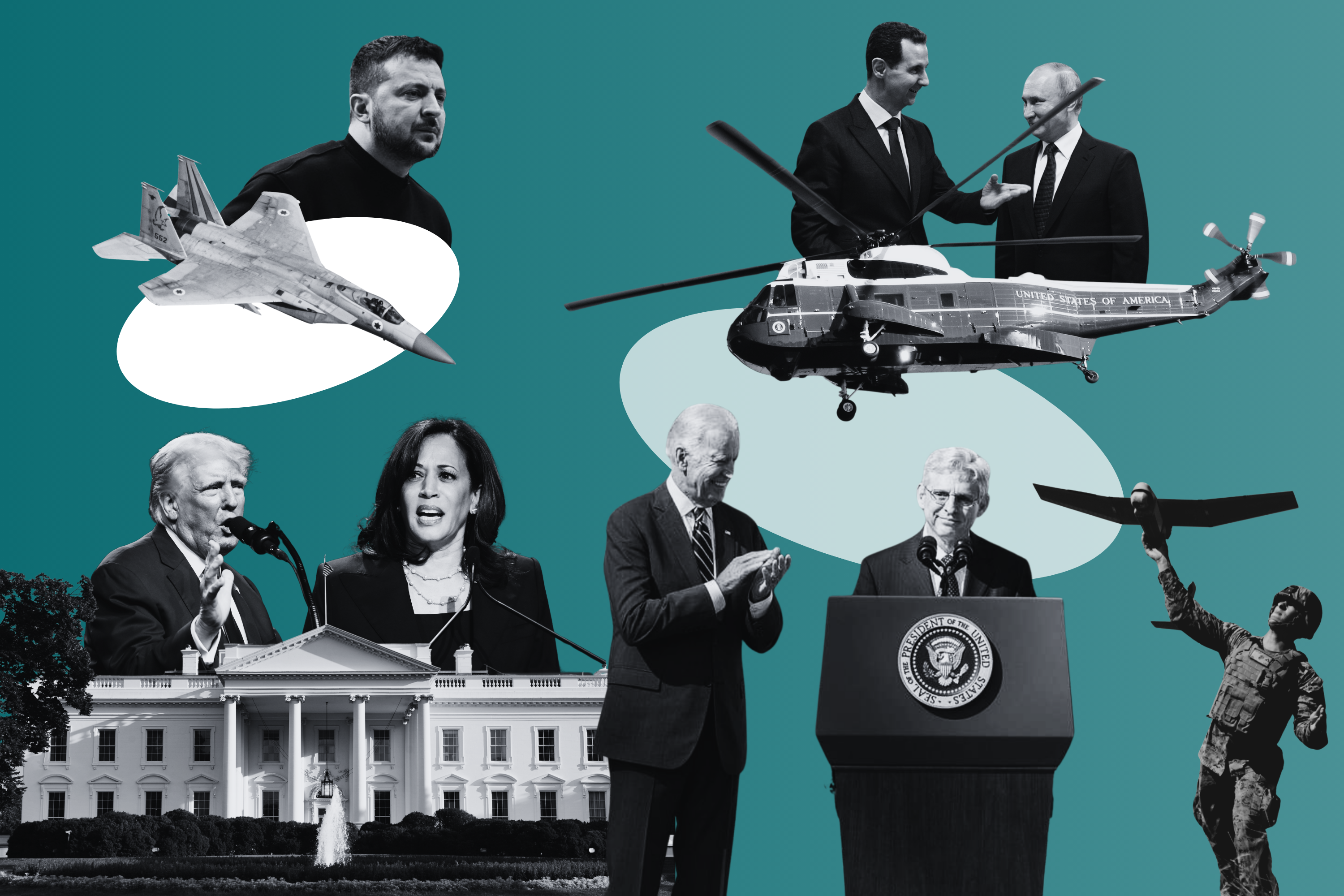Today's Headlines and Commentary
Not a whole lot going today. I guess all the drones, detainees, and terrorists were busy yesterday following the Iowa caucuses. A few items worth mentioning, though.
Yesterday, Iran warned a U.S. aircraft carrier to stay out of the Persian gulf, but the DOD is not listening.
Published by The Lawfare Institute
in Cooperation With

Not a whole lot going today. I guess all the drones, detainees, and terrorists were busy yesterday following the Iowa caucuses. A few items worth mentioning, though.
Yesterday, Iran warned a U.S. aircraft carrier to stay out of the Persian gulf, but the DOD is not listening. Read Thomas Erdbrink's article at the Washington Post here, and the Associated Press's story here (courtesy of the Politico).
Daphne Eviatar of Human Rights First opines in the Huffington Post on President Obama's NDAA signing statement, discussing his comments on detaining U.S. citizens and the detainee status review mandated by the law, and giving a brief comparison between candidate Obama and President Obama on the use of signing statements:
Back when he was a candidate, then-Senator Obama criticized President George W. Bush for his frequent reliance on signing statements to circumvent Congressional intent: "[I]t is a clear abuse of power to use such statements as a license to evade laws that the president does not like or as an end-run around provisions designed to foster accountability. I will not use signing statements to nullify or undermine congressional instructions as enacted into law." What a difference executive power makes.While Eviatar takes Obama's promise to ignore some provisions in the NDAA at his word, Andrew Cohen at The Atlantic is not so sure. It's official: the Taliban are opening a political office in Qatar, taking another step forward in getting to direct negotiations with coalition forces in Afghanistan (although it's unclear whether this signals a shift toward peace or just to hasten NATO's withdrawal). Matthew Rosenberg at the New York Times has the story here. Colum Lynch over at Foreign Policy's Turtle Bay blog ponders why the U.N. hasn't commented on the U.S. use of drones in war. Lynch reports on his interview with Ban Ki-moon, the U.N. Secretary General, on this topic:
"I don't have much to say about all this, what kind of means the member states use," Ban answered. "This is something which national governments, military authorities, they may decide." Ban said that while he hoped these nations act within the bounds of "international regulations and understandings" he realizes that "with the rapid development of technology, many countries develop their own military means of getting, collecting information. Other than that, I do not have comments on this matter." Ban's reluctance to address the drone policy stands in contrast to his predecessor Kofi Annan's criticism of other controversial aspects of the U.S. led war on terror, particularly its detention and rendition policies.The London School of Economics's Fawaz Gerges walks step-by-step to debunk myths about Al Qaeda in the Huffington Post. For more interesting law and security-related articles, follow us on Twitter, and visit the Georgetown Center on National Security and the Law’s Security Law Brief as well as the Fordham Law Center on National Security’s Morning Brief. Feel free to email me noteworthy articles we may have missed at wakeman.lawfare@gmail.com.
Raffaela Wakeman is a Senior Director at In-Q-Tel. She started her career at the Brookings Institution, where she spent five years conducting research on national security, election reform, and Congress. During this time she was also the Associate Editor of Lawfare. From there, Raffaela practiced law at the U.S. Department of Defense for four years, advising her clients on privacy and surveillance law, cybersecurity, and foreign liaison relationships. She departed DoD in 2019 to join the Majority Staff of the House Permanent Select Committee on Intelligence, where she oversaw the Intelligence Community’s science and technology portfolios, cybersecurity, and surveillance activities. She left HPSCI in May 2021 to join IQT.
Raffaela received her BS and MS in Political Science from the Massachusetts Institute of Technology in 2009 and her law degree from Georgetown University Law Center in 2015, where she was recognized for her commitment to public service with the Joyce Chiang Memorial Award. While at the Department of Defense, she was the inaugural recipient of the Office of the Director of National Intelligence’s General Counsel Award for exhibiting the highest standards of leadership, professional conduct, and integrity.





